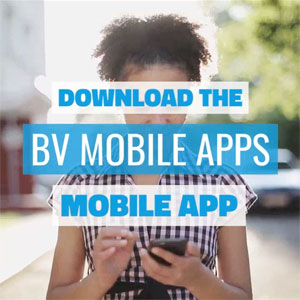Mick Management Doesn't Just Represent Artists - It's in the 'World-Building' Business

Given the multitude of distribution, streaming, promotion and marketing options and expectations, the business of becoming an established artist has turned into a seriously heavy lift for music acts and their managers. It’s one reason that Mick Management partner Jonathan Eshak says, “We don’t like to refer to ourselves as a management company anymore. We’re a music company. What we do more than anything else is brand development, artist development — world-building … We’re not just trying to keep the train on the tracks.”
Eshak and his partner, Michael McDonald, the company’s founder, got into management after immersing themselves in other sectors of the business. McDonald served as Dave Matthews Band’s tour manager before co-founding ATO Records in 2000 with Matthews; his manager, Red Light founder Coran Capshaw; and Chris Tetzeli, who went on to start 7S Management. He opened Mick the following year with John Mayer as one of his first clients and, in 2004, brought on data savant Eshak, who worked at Universal Music Publishing Group (and is the twin brother of Island Records co-CEO Justin Eshak). Jonathan became a partner in 2015.
Related

Vector Management President Jason Murray on the Company's 360-Degree Approach, Americana Successes…
07/19/2024
With a staff of approximately 20 in New York, Los Angeles and Nashville, the duo has built a boutique firm — with its own record label, Mick Music, distributed by Believe — that represents Maggie Rogers, who released the critically praised Don’t Forget Me in April; Leon Bridges and Ray LaMontagne, who will both release albums later this year; The Walkmen and the solo career of their frontman, Hamilton Leithauser; Sharon Van Etten; Brett Dennen; Mandy Moore; My Morning Jacket; and The Marias.
In a fragmented culture where “it’s very hard to find water-cooler moments,” according to Eshak, Mick’s team excels in building committed fan bases for a roster of individualistic artists who punch above their weight. “Artists all define success differently, and we understand that,” he adds. “We understand that there’s no one way of doing it anymore.” Their bespoke approach has resulted in some notable recent successes. In August, Rogers will embark on an international arena tour — including two shows at Madison Square Garden — though she has yet to achieve platinum sales with an album. In 2018, Leithauser began a five-night residency at the swank, 100-capacity Café Carlyle in New York, playing to “a few die-hard Walkmen fans and some fairly confused business travelers,” as Eshak puts it. This year, Leithauser sold out 12 nights, and the concept will be expanded with potential notable guests in 2025. And in June, The Marias celebrated the release of their new album, Submarine, with a secret pop-up show in downtown Los Angeles for approximately 5,000 fans. Eshak says 38,000 RSVP’d.
“What each of those things speak to is us finding interesting ways that the artists appreciate and superserve fan bases,” McDonald says.
Eshak saw his first concert in the late 1980s when George Strait and his band headlined the Houston Livestock Show and Rodeo at the Houston Astrodome. “Thirty-plus years later, I was given this belt buckle by the rodeo when Leon Bridges headlined,” he says. “Truly a full-circle moment.”
What are the challenges of running an artist management company today versus 25 years ago?
Jonathan Eshak: When I first started with Michael, the sky had started to fall on the recorded-music business. This was the dawn of file-sharing companies like Napster and Kazaa. It was attractive to join Michael for that very reason. He was coming from building a world that was unique, not just to the ebbs and flows of the success of recorded music but also, how do you do things well in touring, merchandising, etc. He understood the creation of cultures, having worked with Dave Matthews and Coran.
Like the Grateful Dead, Matthews built a culture around his music.
Eshak: The Dead were the godfathers of that, and Mick’s ethos effectively starts there. While the challenges of the industry have evolved, the code of building an artist’s career remains the same. Which is, how do you focus on building a meaningful, long-lasting relationship with your fan base? We always say, “How do we make the artist the hit and not just the songs?” Music is just part of the cocktail. It’s also, how are we creating a dynamic of connectivity between the artist and the fan? How are we merchandising with them? How are we creating live shows that are meaningful, that evolve? There’s been a lot of lip service about artist development throughout the history of recorded music.
Michael McDonald: There were fewer breakthrough moments then, whereas today, because of the way technology and culture has evolved, it’s been democratized. The upside is that more people can succeed. The downside is there are fewer channels that create that star-turn moment.
 Eshak snagged this copy of the run-of-show for Saturday Night Live on Nov. 3, 2018, when Rogers appeared as musical guest. “It’s an honor each time our acts receive the invite,” he says.
Eshak snagged this copy of the run-of-show for Saturday Night Live on Nov. 3, 2018, when Rogers appeared as musical guest. “It’s an honor each time our acts receive the invite,” he says.
Maggie Rogers seems to be a prime example of someone who has grown through connectivity with her fans.
Eshak: Maggie has understood the importance of connectivity from the start. She had this moment of Pharrell-ity, for lack of a better word, and instead of sitting back and working that, she understood the importance of going around the world and connecting with her fans face-to-face. To your point, she’s doing two nights in Madison Square Garden without a platinum record. Now, she obviously wants that and we want that for her, but people who are in are in. Even as she’s grown, the No. 1 thing on the checklist is, what are we doing for that audience?
What’s an example of that?
Eshak: When we were announcing the fall arena tour, we created pop-up shops in all the markets where people could line up to buy exclusive merchandise and, most importantly, reduced-price tickets. She was hearing from unsettled fans about ticket prices, so we tried to create solves. Fans could walk [into the pop-ups], point at a seat map and get a ticket that was going to cost less than if they paid for it online. Because of that, her fans understand that she sees them.
What questions do you ask before signing an artist?
McDonald: Most importantly, “Do we love the music? Do we feel like we can really grow this career?” And then, “Do they, will they, work hard?” We can’t want it more than they do. Some of this is research you can do before you meet the artist. Much of it we do through conversations, but there’s also data that’s crucial. We’ve had great success following our passion and guts, but to not use the tools at our disposal to help make those decisions would be foolish. Data is a great strength of Jonathan’s and why we’ve evolved in using it to inform decisions but never to unequivocally make decisions. If we did, we never would have signed some of the artists we have.
Why did you partner with Firebird?
McDonald: Firebird brings us resources that a company our size doesn’t have. There’s a data department and an analytics department of 10 to 15 people. There’s a finance department. There are all sorts of things that allow us to double down on the data and free us up to stay focused on our artists.
 McDonald celebrated “turning 50, 20 years of sobriety, raising nearly $500,000 for MusiCares and crossing something off my bucket list” by participating in the 2019 Iron Man World Championship. “It was an epic journey and one of the greatest days of my life,” he says.
McDonald celebrated “turning 50, 20 years of sobriety, raising nearly $500,000 for MusiCares and crossing something off my bucket list” by participating in the 2019 Iron Man World Championship. “It was an epic journey and one of the greatest days of my life,” he says.
What’s your pitch to artists you want to sign?
Eshak: It really comes down to having a shared code, so it’s important that we take the time to sit down with artists and say, “What are your life goals in addition to success in recorded music?” This is such a deep relationship that we talk all the time. We talk on weekends. We’re there with them for very big life stages, and it’s really important for us to have at least a common set of goals because it takes a lot out of everybody. Where we do a good job is acting almost as coaches now. It’s our job to be highly informed about how people are having success, distilling that and applying it to the artists that we represent, who are all quite different. In other words, how can we do this with you so that you remain true to yourself? We can’t do that for a thousand artists. It’s not the business model that Michael and I have elected to build.
You have a label.
Eshak: We have a label, and we’re working with some of our artists whose repertoires are returning to them and they need a mechanism to put music out. Some of it is also identifying artists that we like and helping them put music into the world.
Do you encourage your artists to own their masters?
McDonald: One hundred percent, whenever possible. Today, we would be hard pressed to pursue a deal that started with perpetuity music being somewhere else. There’s always a chance that it’s going to happen, and ultimately, it’s an artist’s decision. If they feel like this is their shot and they’re willing to give that up — absolutely. But one of the reasons we created the label was to say, “All right, let’s have an easy mechanism where we can control the deal terms. Let’s put music out and try to build on that. Then, if a great licensing option is not available today, let’s take a year and try to build something.” Ray LaMontagne’s album Trouble reverted to him in May after 20 years. So it’s not always a three-year or five-year reversion. But 20 years ago, we were able to take a long view and say, “Let’s take whatever percentage less today so at least there’s the option to sell those recordings X number of years later.”
Are your agreements with artists traditional percentage deals or partnerships?
McDonald: It varies. We have a lot of traditional deals, but any time we’re in true partnership, where we’re sharing [intellectual property] with an artist, it’s fully above board and clear with everyone’s legal teams. There is an evolving way that artists are going to get into business with different companies. We welcome that as things evolve.
 A friend of McDonald had this box made for him. “It’s where I keep my most cherished and memorable notes and small keepsakes from artists, family and friends.”
A friend of McDonald had this box made for him. “It’s where I keep my most cherished and memorable notes and small keepsakes from artists, family and friends.”
via: https://www.billboard.com/pro/mick-management-maggie-rogers-artists-superserve-fans/














